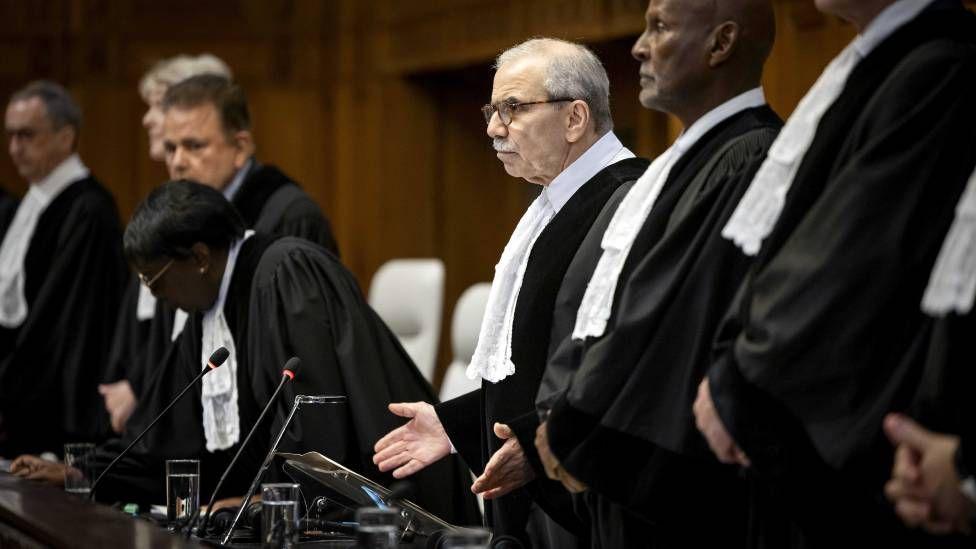The UN’s leading court, the International Court of Justice (ICJ), provided a judgment recently on Israel’s military offensive in Rafah.
It was the most recent declaration by the court in a case brought by South Africa, which implicates Israel of a genocide in the Gaza Strip. Israel has actually emphatically rejected the accusation.
Because the case started, the court has actually provided a series of objected to judgments.
The 2 essential issue whether the court has actually recommended there is a danger of genocide in Gaza. The 2nd judgment – provided on 24 Might – consists of fiercely challenged phrasing over the military operations in Rafah.
It is now being intensively scrutinised and argued over.
In recently’s order, the court ruled by 13 votes to 2 that Israel must: “Right away stop its military offensive, and any other action in the Rafah Governorate, which might cause on the Palestinian group in Gaza conditions of life that might produce its physical damage in entire or in part.”
Headings recommended this was an order to stop all military operations in Rafah – however a few of the judges disagree with what it implies.
5 of the 15 released their own views. 3 had actually supported the order and 2 had actually opposed it.
Judge Bogdan Aurescu from Romania stated he elected the order, however exposed that he believed the court was being “uncertain” and highlighted that it might not prohibit Israel from taking genuine action in self-defence.
Judge Alarming Tladi, from South Africa, disagreed with Aurescu, although they had actually elected the very same order. He stated it informed Israel “in specific terms” to stop its offensive in Rafah.
The 2 judges who had actually opposed the order stated that whatever the others had actually enacted favour of, it was definitely not a need for Israel to start a unilateral ceasefire in Rafah.
Uganda’s Julia Sebutinde stated the court might not “micromanage” a war and Israel’s Aharon Barak, temporarily-appointed for the case, stated the ICJ’s order was “certified” so long as the nation followed the Genocide Convention.
The summary from Germany’s judge, Georg Nolte, is the most revealing to where the court discovers itself.
The order, as he elected it, prohibited military action “as far as it might threaten the rights of the Palestinian individuals” to be safeguarded from a danger of genocide. However he worried: “The court can play just a minimal function in fixing the scenario. It needs to beware not to exceed the limitations of what it can and must do.”
